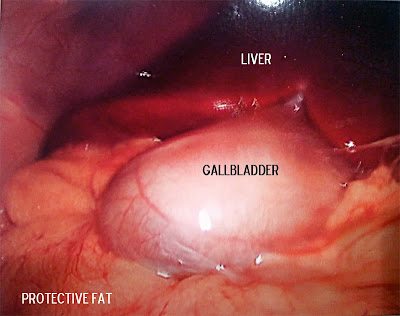The term post cholecystectomy syndrome (PCS) describes the presence of symptoms after cholecystectomy. These symptoms can represent either the continuation of symptoms thought to be caused by the gallbladder or the development of new symptoms normally attributed to the gallbladder. PCS also includes the development of symptoms caused by removal of the gallbladder.
In general, PCS is a preliminary diagnosis and should be renamed relevant to the disease identified by an adequate workup. PCS is caused by alterations in bile flow due to the loss of the reservoir function of the gallbladder. Two types of problems may arise. The first problem is continuously increased bile flow into the upper GI tract, which may contribute to esophagitis and gastritis. The second consequence is related to the lower GI tract, where diarrhea and colicky lower abdominal pain may result. This article mainly addresses the general issues of PCS.
PCS reportedly affects about 10-15% of patients.





